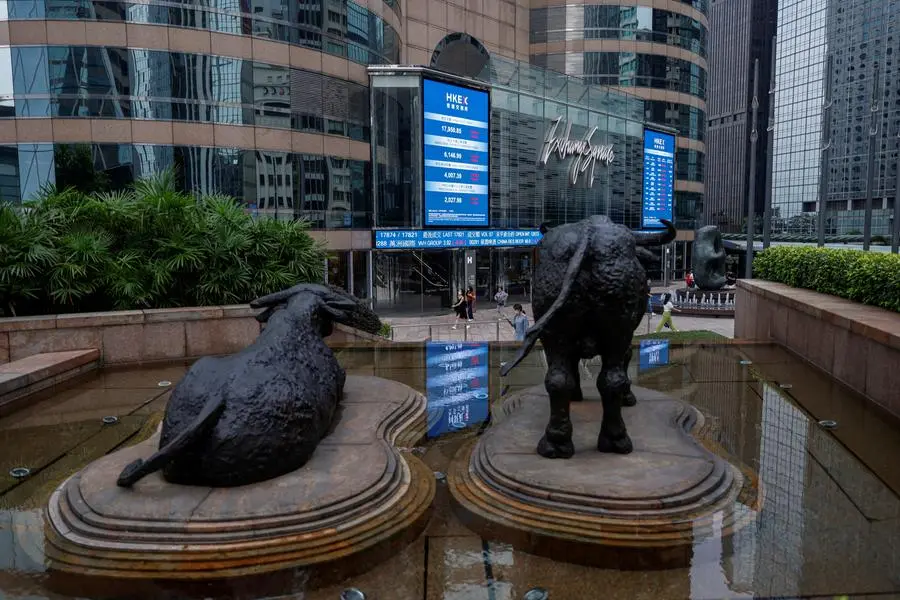PHOTO
Hong Kong shares slumped on Friday, erasing gains from early trade, as China's new rules to curb spending on video games dented sentiment.
China shares closed relatively unchanged, trimming earlier gains following state banks' cut in interest rates on some deposits.
** Hong Kong's Hang Seng Index closed down 1.7% and the Hang Seng China Enterprises Index lost 2.3%.
** China's blue-chip CSI 300 Index ended 0.2% higher, while the Shanghai Composite Index slipped 0.1%.
** Chinese regulators dealt a blow to the world's largest games market by announcing a wide range of
rules
to curb spending and rewards that encourage video games, hurting an industry that returned to growth this year.
** The draft rules also dragged the broad
Asian markets
lower.
** Shares in Tencent Holdings, the world’s biggest gaming company, tumbled 12.3%, marking their biggest loss since the global financial crisis in 2008, while its closest rival, NetEase, plunged nearly 25%.
** "The draft rules are a hit to investor sentiment, and they were worried that it would become the new direction of regulation," said Jiang Liangqing, general manager at Qingzhu Fund Management.
** The Hang Seng Tech Index shed 4.4%, registering its the biggest daily decline since February.
** In mainland markets, the media index dropped 8.2%, and artificial intelligence companies lost 2.3%. In contrast, defence shares climbed 2.8%.
** Five of China's largest state banks, including Agricultural Bank of China and China Construction Bank, cut interest rates on some deposits starting Friday, creating leeway to reduce lending costs as the government urged banks to support the economy.
** "Lower deposit rates should help alleviate pressures on bank net interest margins (NIM) and lay the groundwork for the PBoC to cut its policy lending rates (OMO and MLF) in January," said Ting Lu, the chief China economist at Nomura.
** "If these cuts materialise, it would signal Beijing has become increasingly concerned about the downward pressure on growth... we expect the PBoC to cut its policy lending rates in January 2024."
(Reporting by Shanghai Newsroom; Editing by Subhranshu Sahu)





















